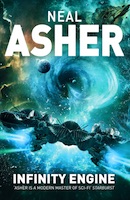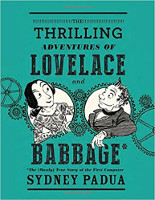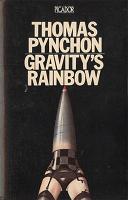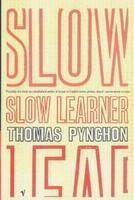 Neal Asher is a British author, splitting his time between his places in Essex and Crete (I guess we’ll have to see what Brexit does about such arrangements!). He has been publishing SF Novels since 2001 - most of them are set in his Polity universe, where humanity has spread over a large amount of space, and is ruled by a centre of (superficially) beneficent AIs. There are humans outside that sphere, there are borderlands with other species, and there are solar systems trying to go their own way, which leads to frequently violent conflict with Separatists. Any similarities with current political arrangements and wrangles might be entirely coincidental.
Neal Asher is a British author, splitting his time between his places in Essex and Crete (I guess we’ll have to see what Brexit does about such arrangements!). He has been publishing SF Novels since 2001 - most of them are set in his Polity universe, where humanity has spread over a large amount of space, and is ruled by a centre of (superficially) beneficent AIs. There are humans outside that sphere, there are borderlands with other species, and there are solar systems trying to go their own way, which leads to frequently violent conflict with Separatists. Any similarities with current political arrangements and wrangles might be entirely coincidental.
Infinity Engine is the final book in a trilogy called Transformation, following the path of development of a rogue AI known as Penny Royal. The earlier two books are called Dark Intelligence, and War Factory, and I would consider The Technician, which set up the scenario for the Trilogy, as an near-integral part of it, too. Overall there are now a substantial number of books available in the Polity universe, spread across time and topics (never mind approaches), and split into individual sub-series. Someone's drawn up a time line, and boy does it help. In terms of this series, though, you don’t have to have read all the books. You could start with Dark Intelligence, or you could pick up The Technician first, and thus get some more background (never mind entertainment) before diving into the trilogy proper. But if not everything I mention in this review makes sense then this is because I’m talking about the final book in a trilogy. Also - of course - anything I give away of the story here is per definition a spoiler for the earlier books - caveat!
Infinity Engine has another point setting it apart - a musician called Steve Buick has composed and recorded an album of original music to go with the book; this is available on evokescape.com. I have not heard it, so cannot comment on how much (or at all) this improves the reading of the book at hand.
But let’s get back to the book - it provides a Cast of Characters and a Glossary (unusual for the final book in a series), then follows the story in 20 chapters, each of them starting with the main actor (thus placing it in a thread, if not a time - this is a problem with flashbacks); and finally a rather epic epilogue.
The Book starts with the Haiman (maximally cybernetically enhanced human whilst still remaining human) Crowther, who, from the space station Well Head (warning, unexpected counterculture reference!) monitors the black hole known as Layden’s Sink. Layden’s Sink is of interest in two ways - firstly it has been found that the Hawking radiation escaping from it is actually modulated, and encodes data. And secondly - the world Panarchia, where Penny Royal as one of the first empathy-enhanced warship AIs went mad and turned dark (thus leading to all these stories) is about to fall into the black hole, making Penny Royal’s quest for - redemption - ? closure - ? all the more urgent. We see flashbacks of that time during the war against the Prador, and not-so-subtle hints that this is where the circle will close, in some way. All very allegorical, at least in setup and outline.
At the same time we see the Brockle, another multi-part swarm AI like Penny Royal, and now also on the run, prepare and go after the latter, because it feels that Penny Royal is dangerous (no doubt about that), and that the Earth Central Security (ECS) AIs are unduly lenient with an entity is sees as being guilty as hell. Yes, the Brockle has a justice boner, although it does not seem to apply the same standards to itself. Madness, or Politics?
Either way, the Brockle takes over the ECS ship High Castle (salient reference, that), a Military/Science ship which was supposed to go after Sverl, a renegade and much changed (by Penny Royal) Prador.
Sverl is, together with Trent Sobel, Riss, and their companions at the derelict Station 101 (spot that reference) which is where Penny Royal was built. This part directly continues from where things were left in the previous book, so this is not even a new story arc. A lot of the other actors previously there like the Kings Guard, Cvorn, Penny Royal (always) have departed, and we’re now looking at internal affairs, inter-AI warfare, and our protagonists following their own targets/agenda/paths to redemption in the midst of this.
This part actually turned rather tedious at a point, before things started leading somewhere, even if this, as an existing thread, launched into action mode from the go and did not need a build-up like the Brockle thread, for example. I guess the main surprise (major spoiler for earlier books!) is that Sverl is still alive, as he uploaded to Crystal before Riss could kill him. Now he’s taking over Room 101 - for what reason I really cannot tell you with a clear conscience.
It was also interesting to see Mr Pace, another of Penny Royal’s ‘beneficiaries’ re-appearing, and we learn a lot more about him - he’s near-invulnerable, has so far proven unkillable, and apparently also consists of multiple, separable units - like the Brockle, or Penny Royal itself.
Overall the story is an end-of arc one, though - all developments are focused on action, on pre-arranged encounters, and follow a plotted path, both from a Penny Royal and from the author’s perspective. I felt there to be a lack of depth and development beyond the obvious, which is maybe also due to this, and the story build-up to this conclusion - this feels slightly hollow behind all the battles, the tech, the escalating plotting and arms races. This is Blockbuster stuff - all the brawn, all the action, but not much of the smarts, maybe.
Also, the casual killing is still too strong, too casual. Even if Penny Royal, nominally, now stands against this kind of thing.
And yes, that’s me moaning about a book, a story, which I greatly enjoyed. Asher delivers the plotting, the deeply woven interplay of story threads, and the thrills. Never mind the big kabooms!
This evidently suits his storytelling skills, and he delivers the quasi-military Space Opera with gusto here. What he does not deliver is where I find his writing, his descriptions really excel, though - creatures, eco-systems, actor-interplay full of logically violent interdependent relationships; may this be fauna, flora, or actual actors.
As a end-of series book this works, the denouement is reasonably complete, and a good number of threads and story arcs are indeed being brought to a close. Some, though, have means of resurrection set up, and possibilities of follow-on stories are also present. If I could pick where he goes next with this… (but, according to the rumour mill, it’s a series on the raise of the Jain next).
If you like Asher, or large-scale Space Opera then you should read this. Not the book on its own, that would be a dead loss I reckon, but the trilogy, or maybe the trilogy plus the lead-in (The Technician).
Although the whole Polity series is recommended, of course!
More Neal Asher
Title: Infinity Engine
Series: Dark Intelligence
Series Number: 3
Author: Neal Asher
Reviewer: Markus
Reviewer URL: http://thierstein.net
Publisher: Nightshade Books/Tor
Publication Date: 2017
Review Date: 170521
ISBN:9781597808897
Pages: 417
Format: ePub
Topic: Space Opera
Topic: AI













